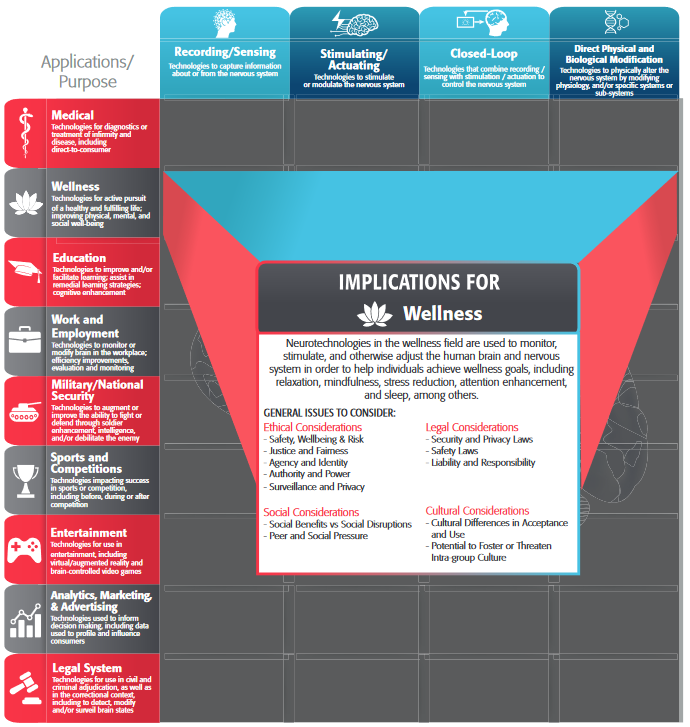Military and National Security Preamble
Attempts by the military to modulate the brain to optimize mental and physical performance are not novel. Increasingly, as multi-domain operations become more complex, requirements placed on decision-making, situational awareness, ability, and mental and physical performance only continues to expand. Military service members also face unique situational challenges, often including hazardous situations that can be life-threatening. Any compromise or degradation in performance or situational awareness has potentially catastrophic consequences, and as such, overseeing agencies have an obligation to offer the most effective technology available to protect and enhance military members’ performance and safety.
Consequently, the application of neurotechnologies is of great interest throughout the military and national security spheres. For example, recent studies have demonstrated that neurotechnology can facilitate cognitive performance, decrease errors, improve efficiency, reduce training time, and provide faster skill acquisition, all of which provide advantages in combat-readiness.
It is likely that military and national security agencies will continue to benefit from the use of neurotechnologies to restore warfighter function through neuroprosthetics, as well as varied human-machine interactions. Beyond restoration, the ability to apply neurotechnologies that enhance neurocognitive abilities can be a force multiplier for global military efforts. As neurotechnologies advance, usage is likely to increase, and without thoughtful deliberation about impacts of neurotechnology use in the military, power dynamics throughout the chain of command could generate conflict or ethical issues. There are also short- and long-term safety risks associated with use (e.g., biocompatibility, reversibility), and security issues such as digital biosecurity, among others.
The potential for expanded prevalence of neurotechnology for military and national security creates complex ethical dilemmas, and although many proposed neurotechnology applications are in their infancy, it is prudent to address the ethical, legal, social, and cultural implications (ELSCI) now, before widespread adoption into military and national security contexts.


